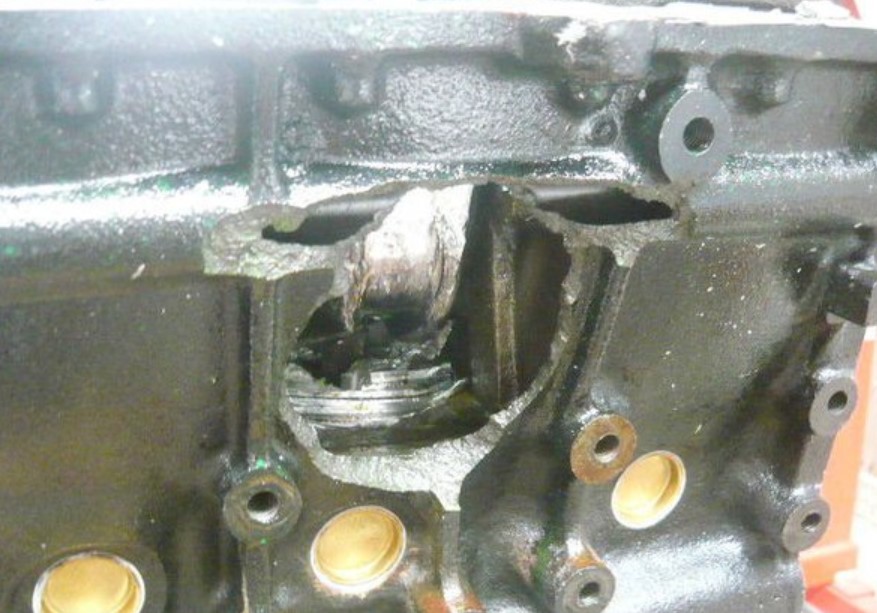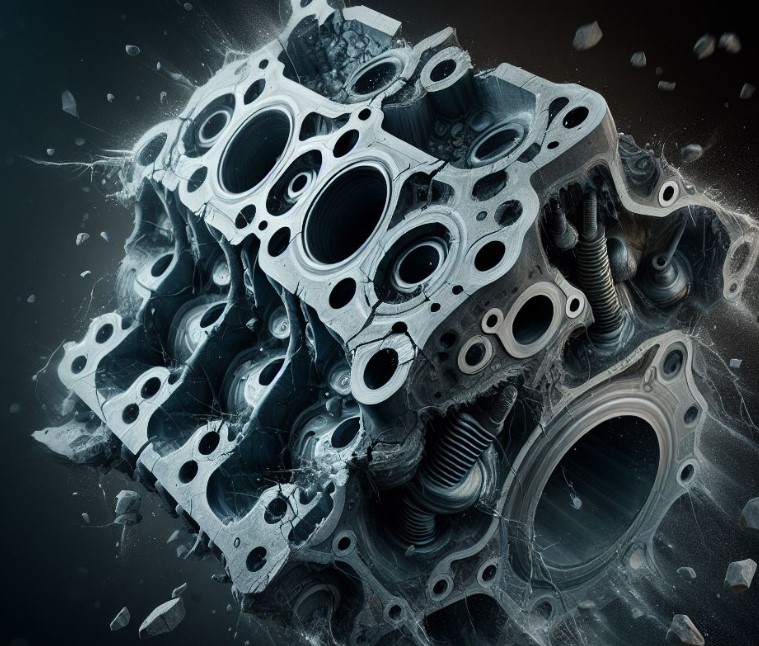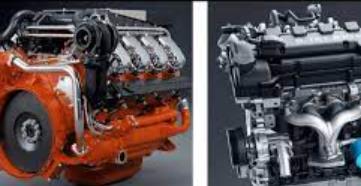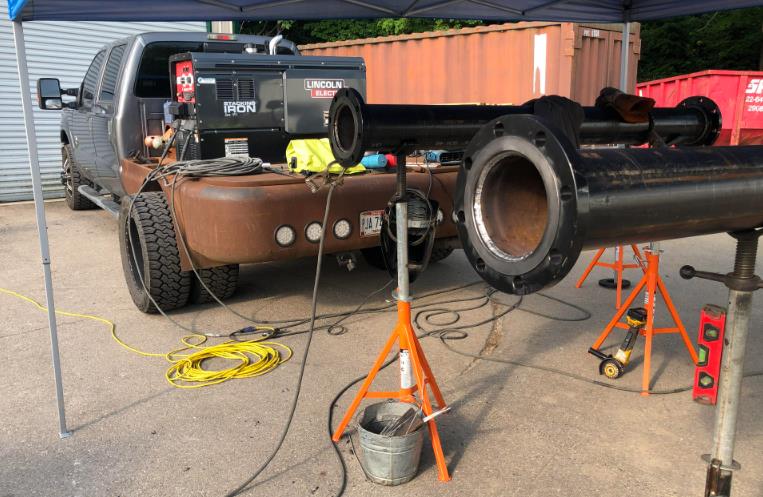What Causes A Hole In The Engine Block? All Reasons
This article will explain What Causes A Hole In The Engine Block? This critical query delves into the heart of automotive health. A hole in the engine block is a significant issue, often resulting in severe engine damage. Understanding its causes is essential for prevention and repair. This article explores various factors leading to this serious problem, offering insights for both car enthusiasts and professionals.
Key Takeaways
- A hole in the engine block can result from overheating, physical damage, manufacturing defects, and more.
- Early detection and maintenance are crucial in preventing engine block damage.
- Understanding the underlying causes helps in effective repair and prolonging engine life.
What Causes A Hole In The Engine Block?
A hole in the engine block is a severe problem that can stem from multiple sources. Overheating is a common culprit, as excessive heat can cause the metal to weaken and crack.
Physical damage, such as a broken connecting rod, can also puncture the block. Moreover, manufacturing defects, although rare, can lead to weak spots prone to breakage.

Overheating and Its Consequences
Overheating is a leading cause of holes in engine blocks. When the engine runs too hot, it can lead to the failure of critical components. The metal of the engine block can warp or melt, resulting in a breach. This is often due to a faulty cooling system or prolonged running under high stress.
Physical Damage and Impact
Physical impact, such as a collision or a broken connecting rod, can cause immediate and catastrophic damage to the engine block. A broken rod can violently pierce through the block, creating a hole. This type of damage is usually abrupt and requires significant repair work.
Manufacturing Defects
While less common, manufacturing defects can also be responsible for holes in engine blocks. These defects might include weak spots in the metal or improper casting. Such issues often show up early in the vehicle’s life and are typically covered under warranty.
Maintenance and Early Detection
Regular maintenance is key to preventing engine block damage. This includes timely oil changes, coolant level checks, and monitoring engine performance. Early detection of issues like overheating or unusual noises can prevent catastrophic damage.
Importance of Regular Checks
Regular checks and maintenance can identify potential issues before they escalate. Monitoring oil levels, coolant, and engine temperature is essential. Regular servicing ensures that any wear and tear or potential problems are addressed promptly.
The Role of Timely Repairs
Ignoring minor issues can lead to major problems. Timely repairs, especially when warning signs like overheating occur, are crucial. Addressing problems early can prevent the escalation to more severe damage like a hole in the engine block.
External Factors and Environmental Impact
External factors, such as environmental conditions and driving habits, also play a role in engine block damage. Harsh driving conditions and poor maintenance routines can accelerate wear and tear.

Harsh Driving Conditions
Driving in extreme conditions, such as very high or low temperatures, can stress the engine. Frequent driving in such conditions without proper maintenance can lead to overheating and, eventually, engine block damage.
Impact of Poor Maintenance
Neglecting regular maintenance can lead to a buildup of issues. This neglect can result in overheating, lubrication problems, and ultimately physical damage to the engine block.
Advanced Engine Technologies and Their Role
Modern engines are equipped with advanced technologies designed to reduce the risk of damage. However, these technologies also come with their own set of challenges.
Innovations in Engine Design
Advancements in engine design aim to enhance efficiency and reduce the likelihood of overheating. Features like improved cooling systems and better materials help in preventing engine block damage.
Challenges with New Technologies
While new technologies offer benefits, they also introduce new complexities. Understanding and maintaining these advanced systems is crucial to prevent damage, including holes in the engine block.
Can You Fix a Hole in the Engine Block?
Fixing a hole in an engine block is a complex and challenging task, often depending on the size and location of the hole. For small cracks or holes, methods like welding, cold metal stitching, or using epoxy compounds are sometimes used.

However, these are temporary fixes and may not guarantee long-term reliability. In many cases, especially with larger holes, the integrity of the engine block is compromised to a point where repair is not feasible or cost-effective.
In such scenarios, replacing the engine block or the entire engine is usually the recommended course of action. The decision to repair or replace depends on several factors, including the age of the vehicle, the overall condition of the engine, and the cost implications.
How Much Does It Cost To Repair A Hole In The Engine Block?
The cost of repairing a hole in the engine block can vary widely, often making it a significant consideration. For minor repairs such as welding small cracks, the cost might range from a few hundred dollars to around $1,000, depending on labor rates and the complexity of the job.

However, if the damage is extensive and requires more sophisticated repairs or replacement of the engine block, the costs can escalate quickly.
A new engine block can cost anywhere from $2,500 to $5,000, and that’s before considering labor costs, which can add several more thousand dollars. It’s important to note that these are rough estimates, and actual costs can vary based on the vehicle model, the extent of damage, and regional price differences.
How Do You Tell If There Is A Hole In The Engine Block?
Detecting a hole in the engine block involves looking for several key symptoms. The most obvious sign is the leakage of fluids such as oil or coolant, often visible on the ground where the vehicle is parked.
Another indicator is the engine overheating, as a hole in the block can lead to a loss of coolant and reduced cooling efficiency. You might also notice poor engine performance, including loss of power, rough running, or strange noises coming from the engine area.
In severe cases, there may be visible damage to the block itself or excessive smoke from the exhaust, indicating burning oil or coolant. It’s crucial to address these symptoms promptly, as driving with a damaged engine block can lead to further damage and safety risks.
Conclusion
Understanding what causes a hole in the engine block is vital for maintaining engine health. Factors like overheating, physical damage, and neglect play significant roles. Regular maintenance, awareness of external factors, and adapting to new technologies are key to prevention. Recognizing and addressing these issues early can save significant time and money, ensuring the longevity of the engine.
Frequently Asked Questions
Can driving habits influence the likelihood of engine block damage?
Aggressive driving, such as frequent hard accelerations and high-speed driving, can increase engine stress, leading to overheating and potential damage to the engine block.
What is the cost implication of fixing a hole in the engine block?
Repairing or replacing an engine block is expensive, often running into thousands of dollars. The cost depends on the extent of the damage, the type of engine, and the chosen repair method.
Can regular maintenance prevent holes in the engine block?
Regular maintenance can significantly reduce the risk. It ensures timely detection and repair of issues that could escalate into severe damage, such as a hole in the engine block.

Welcome to the exhilarating world of Matt Rex, a professional car racer turned renowned vehicle enthusiast. Immerse yourself in his captivating blog as he shares heart-pounding adventures, expert reviews, and valuable insights on cars, trucks, jets, and more. Fuel your passion for speed and discover the beauty of vehicles through Matt’s engaging stories and meticulous expertise. Join the ever-growing community of enthusiasts who find inspiration and expert advice in Matt Rex’s blog—a digital hub where the thrill of speed meets the pursuit of knowledge.



![What Trucks Does Nyjah Use? [Answered]](https://www.turbochaos.com/wp-content/uploads/2023/12/What-Trucks-Does-Nyjah-Use-768x491.jpg)



